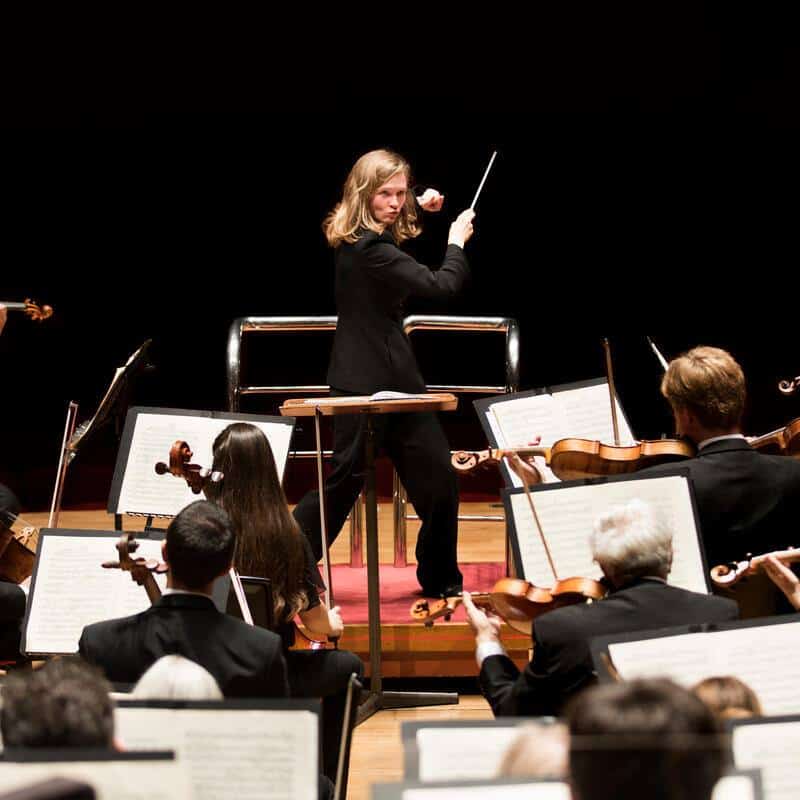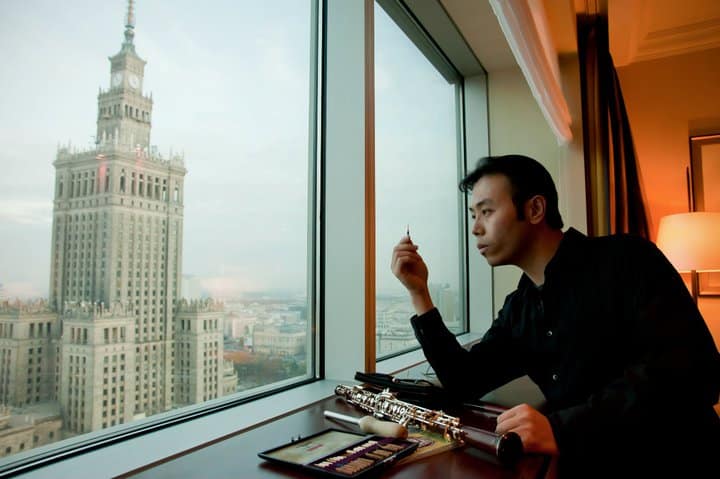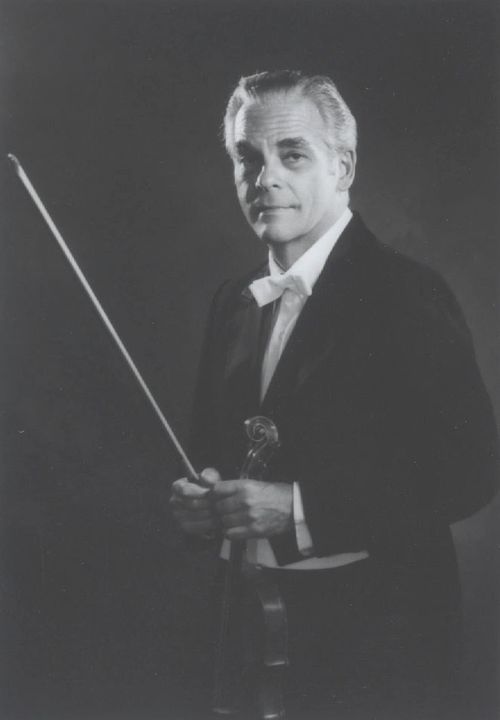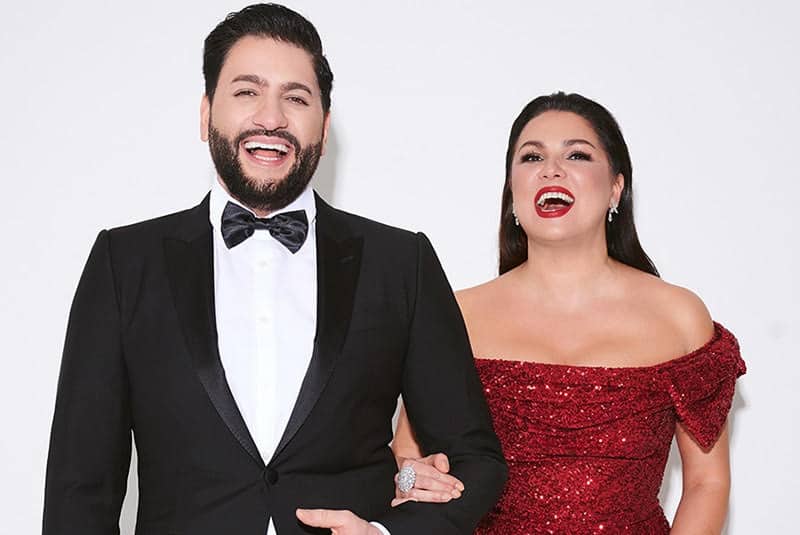Mirga: We need to fight the Russians
OrchestrasFrom a programme note by Mirga Gražinyte-Tyla for tonight’s City of Birmingham Symphony concert:
My dad and my brother have said numerous times since Russia invaded Ukraine that they would go to the front and fight. We Lithuanians experienced so much crime from Russia that it feels as if the war is happening to us. “I feel it physically, in my own body, every day”, – again my Dad.
Poland was the first country to make the decision to not showcase any Russian art until the former red army leaves Ukraine in peace. Lithuania soon followed suit. I feel torn knowing this since I LOVE Russian music, literature and art – I am quarter Russian after all! Now though, we must focus our view on the “post-soviet” countries. We must explore the great work their people have created and therefore acknowledge the existence, identity and independence of those free countries.
That is why this programme is purely Georgian-Lithuanian-Polish-Jewish-Ukrainian. So many unknown pieces, and quite a few British premieres!
I imagine that by now, many of you will know the name Mieczysław Weinberg. His two concertos we are performing tonight show the wide arc from the early to the late work by Weinberg. He composed the Twelve Pieces for Flute in 1945, and the Concerto for Clarinet in 1970. Between which he suffered under Jewish discrimination, humiliation by the Soviet government, the loss of his stepfather who was murdered by the latter, and imprisonment. The early work for flute is very much influenced by Baroque and Bach as well as by Impressionism. The late clarinet concerto reveals the composer’s close relationship to Shostakovich. We hear the depth of Weinberg’s big opera “The Passenger” in this piece.
Folk songs are crucially important for the (smaller) countries that have big and aggressive neighbours. If those neighbours undertake violence, singing helps to remember their right to exist and to dream of a better future. “Requiem for Ukraine” by Igor Loboda, based on a Ukrainian folk song, is the heart of this programme.
Unwind with a beautifully simple melody and a jazzy rhythm – Vakhtang Kakhidze’s “Bruderschaft” provides the perfect ending to the concert.
The beginning is “Miške” – “In the Forest” by Mikalojus Konstantinas Čiurlionis. All the Lithuanian musicians take influence from him. His paintings, literature and music – an endless spring of inspiration. “I imagine the world as a big symphony” – Čiurlionis.
Full programme here.






Moscow must be stopped at all costs. The fate of Western Civilization hangs in the balance.
What to do with an aggressive, angry psycho neighbour who knowingly and enthusiastically embraces the identity of a barbarian? Putting a fence around his house and guard it with police, and hoping he will implode by himself.
“Moscow must be stopped at all costs. The fate of Western Civilization hangs in the balance.”
So, IF after running out of Western money and Ukrainians (who actually do the fighting and dying), Russia is militarily defeated, Putin/his successor surrenders the nuclear weapons?
Really? That`s the game plan?
NATO had one job. One job. Remember, anyone?
Let me confess: The “News” are as amusing in the West as in Russia. And the people keep cheering: “Victory!”. Tomorrow…
Applauding any focus on the national music of the ethnicities enslaved or attacked by the Russian, Soviet and now Ruzzian imperialists.
I really hope they record that program and release it commercially.
It was broadcast live on Radio 3 so you’ll find it on the BBC Radio Player
Ok, try to replace Rachmaninov with Ciurlionis and see how happy it makes you.
Weinberg, on other hand, has some genius stuff.
Free and beware me of all these sparrows trying to act like Churchill.
I don’t think that the ban on Russian music ( and art in general) will help. How deep is the mistake to refuse to play Shostakovich, to remove Pushkin monument…my God, only war and violence can be utilized to talk with the Russian? I don’t have solution, nobody has a solution…ban on Russian music or culture is a bad mistake, and from my point of view this is something to avoid.
What ban on Russian music? No such thing exists in the UK or any western European country, as far as I am aware. Within the last two months I have heard performances of Shostakovich, Rimsky-Korsakov, Stravinsky, Tchaikovsky and Borodin.
This was truly a special concert in Symphony Hall last night. Opening with Mirga singing a folk song accompanied by her sister on the piano, and showcasing several incredible soloists from our CBSO, it was an entirely captivating, intriguing, moving programme and performance.
Good. And one hopes it maybe helped persuade the CBSO management that concerts can still work on their own terms, without the visual-spectacular gimmickry they seem so keen on.
About as laughably bourgeois an idea of ‘fighting’ for a cause as you can get. Honestly I wish classical musicians would just shut up and get on with being musicians instead of embarrassing themselves with egotistical, grandiose and ultimately inconsequential views on world politics.
Indeed. Did anyone bother to ask her if her dad and brother went to fight in Ukraine?
Music is notable for the way it brings people together. It works especially well when it brings them together to hate another group of people.
So how come Wagner is never (or hardly ever) played in Israel?
Wagners’ Nazi associations made his music impossible to play in Israel for many years as most performers and crowd were survivors or their relatives.
As for Weinberg – his Polish name is used here, rather than his Jewish original (Moshe = Moses).